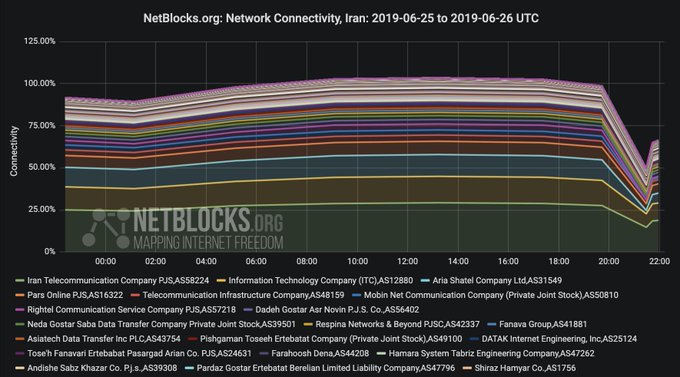By Heshmat Alavi
The June 12 attack targeting two oil tankers in the Sea of Oman was carried out by a special unit of Iran’s Revolutionary Guards (IRGC) Navy, according to Majid Hariri, a member of the Iranian opposition coalition National Council of Resistance of Iran (
NCRI).

The attack was launched under orders from IRGC Brigadier General Ali Fadavi and in collaboration with a naval base associated to the IRGC in the port of Jask, southern Iran, just 30 miles from the location where the oil tankers were attacked, the NCRI member said in an
interview with the Syrian opposition Orient TV network.
Tehran’s objective in this attack was to save face and prevent a massive drop in spirits among its IRGC ranks and file as domestic and international crises are engulfing the regime in Iran. By disrupting regional security and oil transfers, Iran sought to decrease the impact of ongoing political, social and economic dilemmas that have a suffocating and overwhelming effect on their entire apparatus.
Realizing the United States’ main strategy is not to launch a new war, the Iranian regime resorted to these latest series of provocative measures:
- Attacking oil tankers in the Sea of Oman
- Iran-backed Houthis launching continuous drone attacks targeting civilian airports and vital oil facilities in Saudi Arabia
- IRGC-backed Iraqi militias launching rocket attacks near the U.S. Embassy and various military bases in Iraq
- And most recently, downing a U.S. drone in international airspace near the Strait of Hormuz
Based on an inside note obtained by the Iranian opposition from an Iranian Intelligence Ministry official in regards to the regime’s policies vis-à-vis the U.S., Tehran sought to send a message to Washington: if our interests are threatened, the entire region will be engulfed in crises.
Iran will most possibly expand its operations across the Strait of Hormuz and the Sea of Oman, according to Hariri. Tehran has recently established three naval bases in city of Jask and increased its military presence in this area, the report adds.
Based on the Iranian regime’s unconventional naval warfare doctrine, using sea mines to threaten ships in the Sea of Oman and the Strait of Hormuz is a known method periodically reiterated in the IRGC’s threats.
In further reports, the Israeli intelligence service are also placing their crosshairs on Iran’s regime.
Israeli intelligence and security agencies have reached a conclusion in their analysis that Iran’s IRGC was behind the attack on two oil tankers in the Sea of Oman, according to Israel’s Channel 13 TV.
Israeli intelligence agencies began analyzing their data following the attacks, concluding that the IRGC used sea mines and torpedoes in this attack, according to the report, aired Saturday evening local time.
As a result, Israel is now alongside the U.S. and UK in holding Iran’s regime responsible for these attacks.
Two weeks ago, Israel’s Kann TV reported the Mossad had delivered evidence to its intelligence partners on Iran’s role in last month’s attack targeting four oil tankers off the coast of the United Arab Emirates. The receiving parties have reportedly presented their evidence to the United Nations.
At the end of the day, it is quite obvious that the only party that could possibly have any interest in conducting such attacks and disrupting regional security is Iran’s regime.
Under heavy sanctions and considering any negotiation with the U.S. in such circumstances as a humiliating blow, Tehran intends to force Washington into launching a new war in the region. In Tehran’s point of view, such an outcome can result in:
- Skyrocketing oil prices
- Portraying the U.S. as the aggressor and Iran as the innocent party
- S. President Donald Trump facing opposition to any war both inside his country and isolation abroad
- Iran being able to kick the can down the road and hoping Trump will lose in November 2020
President Trump’s strategy – especially the recent sanctions targeting Iranian Supreme Leader Ali Khamenei and his massive economic apparatus in Iran – has foiled all of Tehran’s plots.
The road ahead looks promising.
Heshmat Alavi
Human Rights & Political Activist. Writer/Commentator on Iran & the Middle East in @Forbes @AlArabiya_Eng @raddreportmag @FDRLST @TheHill @TheDailyCaller
This article was first published by herald.report









Comments
Post a Comment